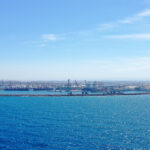We wish to inform our members that new tariffs have been published in Turkey for pollution fines. Based on the advice of our correspondents we note the new tariffs as follows:
- Pollution caused by tankers discharging petroleum and petroleum derivatives (such as crude oil, fuel products, bilge, sludge, slop, refined product, greasy waste materials etc.):
- Up to 1,000 (inclusive) GT: TL 3,184.81 per unit GT
- Between 1,000 and 5,000 (inclusive) GT: TL Additional 796.23 per unit GT
- Over 5,000 GT: Additional TL 79.59 per unit GT
- Dirty ballast discharged to sea by tankers:
- Up to 1,000 (inclusive) GT: TL 580.25 per unit GT
- Between 1,000 and 5,000 (inclusive) GT: Additional TL 115.76 per unit GT
- Over 5,000 GT: Additional TL 18.37 per unit GT
- Petrol/petroleum products (such as bilge, sludge, slop, fuel products, greasy waste materials etc.) and dirty ballast discharged to sea by vessels or any other sea vehicles:
- Up to 1,000 (inclusive) GT: TL 1,592.40 per unit GT
- Between 1,000 and 5,000 (inclusive) GT: Additional TL 318.49 per unit GT
- Over 5,000 GT: Additional TL 79.59 per unit GT
- Garbage and sewage discharged to sea by vessels and any other sea vehicles greater than 150 GT:
- Up to 1,000 GT – TL 796.23 per unit GT
- Between 1,000 and 5,000 GT – additional TL 159.25 per unit GT
- Over 5,000 GT – additional TL 18.37 to be added per unit GT
- Excessive sulphur content of marine fuels in excess of IMO Regulations:
- Up to 1,000 (inclusive) GT – TL 706.51 per unit GT
- Between 1,000 and 5,000 GT – additional TL 88.31 per unit GT
- Over 5,000 GT – additional TL 17.67 per unit GT
In addition, we note that the Marmara Sea (including the Istanbul Strait, Canakkale Strait and Izmit Bay) was declared as a Special Environmental Protection Area and apparently fines in this area will be doubled. In addition, if the vessel has more than one pollution incident within three years, the fines will be doubled and tripled on subsequent recurrences that are caused by the same offender within three years. If any dangerous substances or hazardous wastes are discharged into the sea, the fine will be 10 (ten) times the amount calculated using the category of petroleum and petroleum product fines as a basis.
Finally, if the fine is paid before the vessel’s sailing or within 30 days, a 25% reduction will likely be applied and the shipowner will be able to reduce the fine by up to 2/3 where it takes measures to clear up the pollution.




